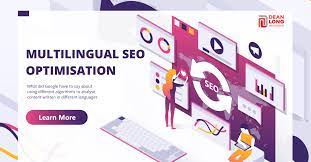Mastering Digital Marketing: Strategies for Success

Unlock the potential of digital marketing with our comprehensive guide. Learn essential strategies and tactics to succeed in the dynamic online landscape. Explore SEO, content marketing, social media strategies, and more. Elevate your digital presence and engage your audience effectively.
Introduction:
In today’s digital age, where consumers spend a significant portion of their time online, mastering digital marketing is essential for businesses looking to thrive. This article will delve into the world of digital marketing blog, exploring key strategies and tactics to help you succeed in this dynamic and ever-evolving landscape.
The Digital Marketing Landscape
1. Search Engine Optimization (SEO)
Search engine optimization remains the cornerstone of digital marketing. It’s crucial for businesses to optimize their online presence so that they appear prominently in search engine results. To succeed in SEO, focus on:
- Keyword Research: Identify the keywords your target audience uses when searching for products or services like yours.
- Content Optimization: Create high-quality, informative, and engaging content that aligns with your chosen keywords.
- Technical SEO: Ensure that your website is technically sound, with fast loading times and mobile responsiveness.
2. Content Marketing
Content is king in the digital marketing realm. Quality content can attract, engage, and convert prospects into customers. Key content marketing strategies include:
- Blogging: Maintain an active blog with informative articles that address your audience’s pain points.
- Video Marketing: Leverage the power of video content on platforms like YouTube to reach a broader audience.
- Social Media: Share your content across social media platforms to increase visibility and engagement.
Social Media Marketing
3. Social Media Advertising
Paid advertising on social media platforms is a potent tool for reaching a highly targeted audience. Key strategies include:
- Audience Segmentation: Define your target audience and create highly specific ad campaigns.
- Ad Creatives: Craft visually appealing and compelling ad creatives to capture users’ attention.
- Analytics: Continuously monitor campaign performance and adjust based on data insights.
4. Influencer Marketing
Leveraging influencers can amplify your brand’s reach and credibility. Consider:
- Identifying Influencers: Find influencers who align with your brand values and target audience.
- Collaborative Campaigns: Partner with influencers to create authentic content that resonates with their followers.
Email Marketing
5. Email Automation
Email marketing remains a highly effective way to nurture leads and drive sales. Implement:
- Automation Sequences: Set up automated email sequences to deliver personalized content and promotions.
- Segmentation: Segment your email list to send tailored messages to different customer groups.
- A/B Testing: Continuously test email subject lines, content, and timing for optimal results.
Data Analytics and Optimization
6. Data-Driven Decision Making
The power of digital marketing blog lies in data. Regularly analyze and optimize your strategies based on:
- Key Performance Indicators (KPIs): Monitor KPIs such as conversion rates, click-through rates, and customer acquisition costs.
- A/B Testing: Experiment with different approaches and use data to determine what works best.
Conclusion
Digital marketing is a multifaceted discipline that requires adaptability and a commitment to staying current with industry trends. By mastering the strategies outlined in this article, businesses can establish a strong online presence, engage with their target audience, and ultimately achieve success in the digital landscape. Remember that digital marketing is an ongoing process, and continuous learning and adaptation are key to long-term success.
FAQs
1. What is digital marketing, and why is it important?
- Digital marketing encompasses all online strategies and tactics used to promote businesses and engage with customers. It’s crucial in today’s digital age because it allows businesses to reach a vast audience, increase brand visibility, and drive sales through various online channels.
2. How does SEO fit into digital marketing?
- SEO, or Search Engine Optimization, is a fundamental part of digital marketing blog. It involves optimizing your website and content to rank higher in search engine results, making it easier for potential customers to find your business online.
3. What is content marketing, and why is it essential?
- Content marketing involves creating and sharing valuable, informative, and engaging content to attract and retain a target audience. It’s essential because it helps build brand authority, educate customers, and drive organic traffic to your website.
4. Can you explain the role of social media marketing in digital marketing?
- Social media marketing involves using social media platforms to connect with your audience, build brand awareness, and promote products or services. It’s an integral part of digital marketing as it allows businesses to interact directly with their customers and create a community around their brand.
5. How can email marketing benefit my business?
- Email marketing is a powerful tool for nurturing leads and maintaining customer relationships. It allows you to send targeted and personalized messages to your audience, promoting products, sharing updates, and driving conversions.
6. What is the significance of data analytics in digital marketing?
- Data analytics is essential in digital marketing as it provides insights into the performance of your campaigns. It helps you make data-driven decisions, optimize strategies, and allocate resources effectively to achieve better results.
7. How can I get started with digital marketing for my business?
- To get started with digital marketing, first, identify your goals and target audience. Then, create a digital marketing strategy that includes SEO, content marketing, social media, email marketing, and data analytics. Consider seeking assistance from digital marketing experts if needed.
8. Is digital marketing a one-time effort, or does it require ongoing work?
- Digital marketing is an ongoing effort. To stay competitive and relevant, businesses should continuously adapt their strategies to changing trends and consumer behaviors. Regular updates and optimization are essential for long-term success in the digital landscape.



